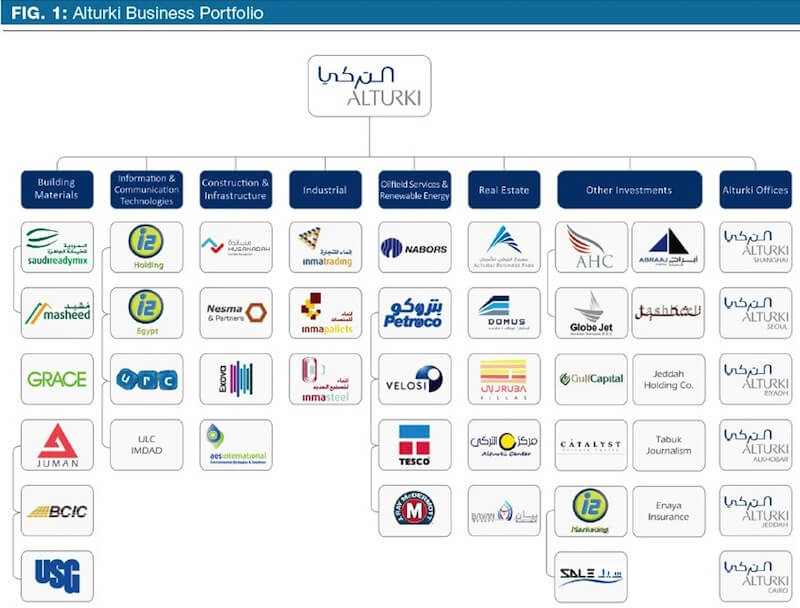Any family business leader will confirm that ventures and alliances with multinationals are a complex matter. In addition and all likelihood, each and every one of them will systematically stress the importance of finding the right partners for growth. Family businesses, maybe especially in the Arab world, are in a unique position of being able to provide high quality access to markets for multinational corporations (MNCs), and yet, recognising each other as potentially beneficial partners to future expansion is not enough to ensure that a venture will be successful. Rami Alturki, President of Khalid Ali Alturki & Sons (Alturki), KSA, gives a first-person narrative of his experience in forging strategic alliances and joint ventures with multinationals and defines the most important dos and don’ts.
In the Beginning or ‘How I started’
I joined our family business in 1999 after having completed my studies and first years of work experience in the US. When I started, my first assignment was part of a new venture: We had created a new company that was to act as a master licensee for satellite communication in the Middle East and Central Asia. At the time the industry was booming and our partner was an American company. When I began my work our family business had just started negotiating the master franchise with the Americans. I became the Director of Territory Development, which meant that I was responsible for the appointment of sub-licensees. It was the first venture that I witnessed first hand and I worked on it for about two years. Unfortunately, our partners ended up going under as the industry took a severe hit around that time. We had to wrap the whole thing up. That is how quickly these things can go wrong. Fortunately for us, we had not yet reached the point where we had made any sizeable investments. In terms of loss, I guess, it could ohave been much worse.
Our family has always operated under a vision that drives us towards building differentiated businesses. The idea is to partner with MNCs and build extraordinary opportunities that would not be possible would either party act on its own. We have over the years added many of these types of ventures to our portfolio (see Figure 1 below). In my own career I actively participated and led the development of our joint-ventures with WR Grace, Exova, and Velosi. I learnt many important lessons from each and every venture and will certainly continue to learn with every new partner we acquire. Essentially, however, I think that partnering with MNCs holds a few specific challenges for family businesses. That is why I have come up with a list that encompasses the crucial dos and don’ts, according to me, for achieving successful alliances and ventures between these two entities.
Partnerships or ‘Why We Need Others’
Before you start looking or talking to potential partners, it is important to understand why you want or even need to team up with another organisation. Can you succinctly state what and how a ank”>partner will contribute to your business? Is it a new >technologyan>, market access, distribution channels, production facilities, or all of the above and more? When the answer to these questions is clear then finding the right organisation and collaborating with it will become easier. Moreover, once the right partnerspan> comes on board the weight you are pulling should become lighter not heavier and you should be able to achieve more than if you had acted on your own. If a partner adds to your burdens then you might want to reconsider.
DNA or ‘What defines us’
No matter how many ventures and alliances a family business enters, it should know its core values and strive to remain true to them. You can change the appearance of it all and modernise branding and marketing, but you should remember who you are at all times. So before a family business enters a partnership with a MNC, family members might want to sit down and define what it is that defines their business; discover their family ss”>businessspan> DNA. This will also help you in differentiating yourself from others a businessn> that has a clear vision of its capabilities and values will stand out. Automatically, an external hip”>partner will be able to recognise in what ways it can contribute to and benefit from you as a family business.
Principles or ‘Cannot compromise on values or principles’
You should understand and know your own principles and make sure that you never compromise on them. No matter how badly you want to partner with a certain organisation, if you pretend to be something you are not, somewhere down the line it will catch up with you. Pretending that you can adhere to visions that do not fit with your principles is of no use and makes both parties loose a lot of time and energy.
Culture or ‘Try to understand it’
If as a family business you want to work with a MNC you have to get a siness”>firm</span> understanding of its corporate culture. Culture is probably the most important fit element for a positive collaboration

















